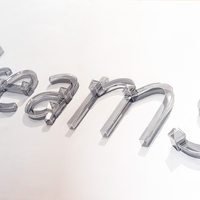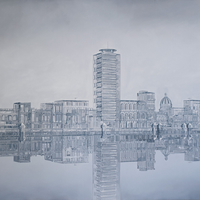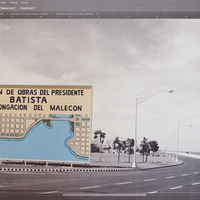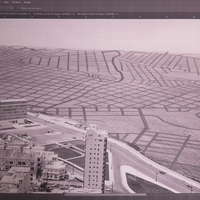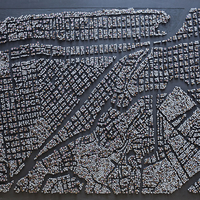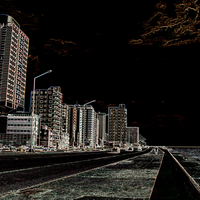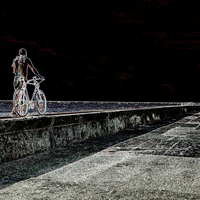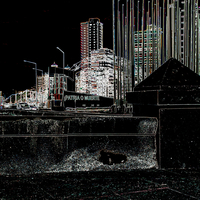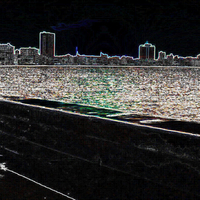Donis Dayán Llago has an eminently brainy vision of the universe around. His perspective is cold and distant. In strict lines, glassy volumetric bodies, virtual extensions and a definitely technical code, he holds a sort of superficial cartography of the urban territory of Havana. But the skin of his structures is translucent and it shows its inside, the emptiness that composes, articulates and nurtures every architectonical body recreated by him. This unusual sensation of insubstantiality, inside and outside, is typical.
His gesture is utopian as well as dystopian: such nudity indicates absolute perfection and it is also the sign of a toxic disuse. The human component that usually fertilizes it has been annulated and with it, part of the great sense of the appropriate object. It is a putrid substitute, the result of geometrical, almost holographic projection of reality, and in that fantastic and meticulous vision is encysted power’s panoptical and ordered idea.
Thus, Donis Dayán glimpses the silhouette of a shrouded, infertile city of cold airs and dense skies; a mirage of inaction. Perhaps that is a shipyard of dreams, or an unhealthy ground on which life hangs on a thread every day; or maybe the glass is a symbol of the fragility of something beyond the evident inconsistency of the city’s body. Anyway, his empathic projection about things is frankly disturbing.




